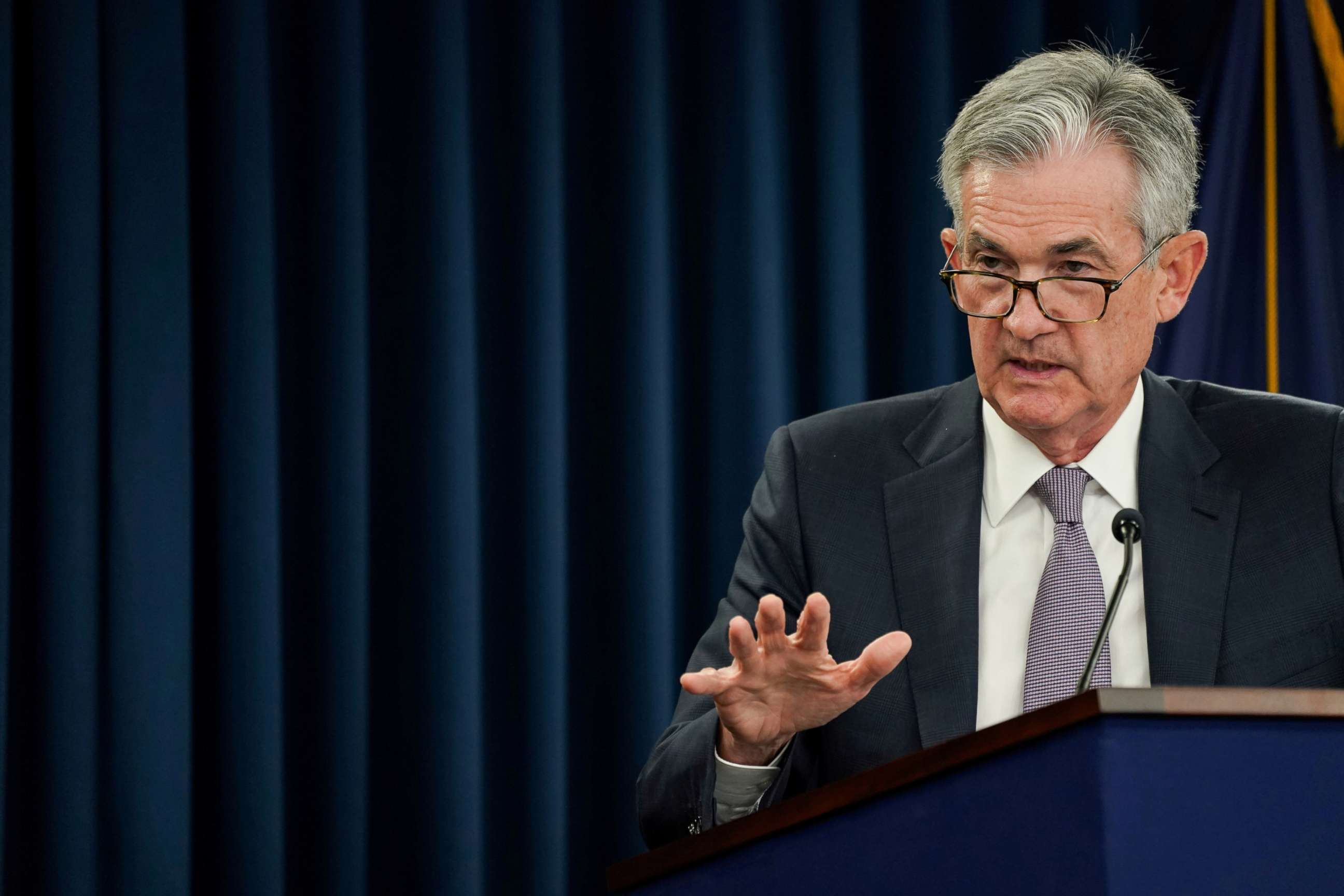Fed cuts interest rates again
It is the third interest rate cut this year.
As widely expected, the Federal Reserve on Wednesday cut interest rates by a quarter of a percentage point.
"Today, we decided to lower the interest rates for the third time this year. We took this step to help keep the U.S. economy strong in the face of global developments and to provide some insurance against ongoing risk," Federal Reserve Chairman Jerome Powell said at a news conference after announcing the rate cut.
While the job market remains strong and inflation continues to run below the Fed's 2% target, "weakness in global growth and trade developments have weighed on the economy and pose ongoing risks," he noted.
"These factors, in conjunction with muted inflation pressures, have led us to lower our assessment of the appropriate level of the federal funds rate over the past year," Powell said. "Since monetary policy operates with a lag, the full effects of these adjustments on economic growth, the job market and inflation will be realized over time."
The U.S. economy grew by 1.9% in the third quarter, slightly better than expectations but still below the 3% mark that was promised by the Trump administration.
The U.S. Department of Labor, in its most recent jobs report, said unemployment rates have fallen to their lowest level in 50 years.
Stocks have also been on the rise in recent weeks; on Monday, the S&P 500 reached a new all-time high.
Overall the economy is "in a good place," Powell said at a Fed Listens event in Washington, D.C., earlier this month, adding that "our job is to keep it there as long as possible."
Some have questioned why the Fed continues to lower interest rates even with positive economic growth over the last 11 years.
Cutting interest rates makes it easier for people to borrow and spend money and is a way to "give the economy a little more gas," David Wessel, a senior fellow in economic studies at the Brookings Institute, told ABC News in September.
A rate cut of a quarter of a percentage point, however, is not going to make a big difference to most people "unless you're a zillionaire," Wessel said.
Home equity loans, car loans and mortgage rates are only slightly impacted by a rate cut, economists say.

"A single quarter-point rate reduction doesn't really move the needle for people with card debt, but as these decreases continue, they do start to have more of an impact," Matt Schulz, the chief industry analyst at the credit cards research site CompareCards.com, said in a statement Tuesday. "For the average person with $6,000 in credit card debt, these three rate reductions together will save them just under $100 in interest. That's significant."




